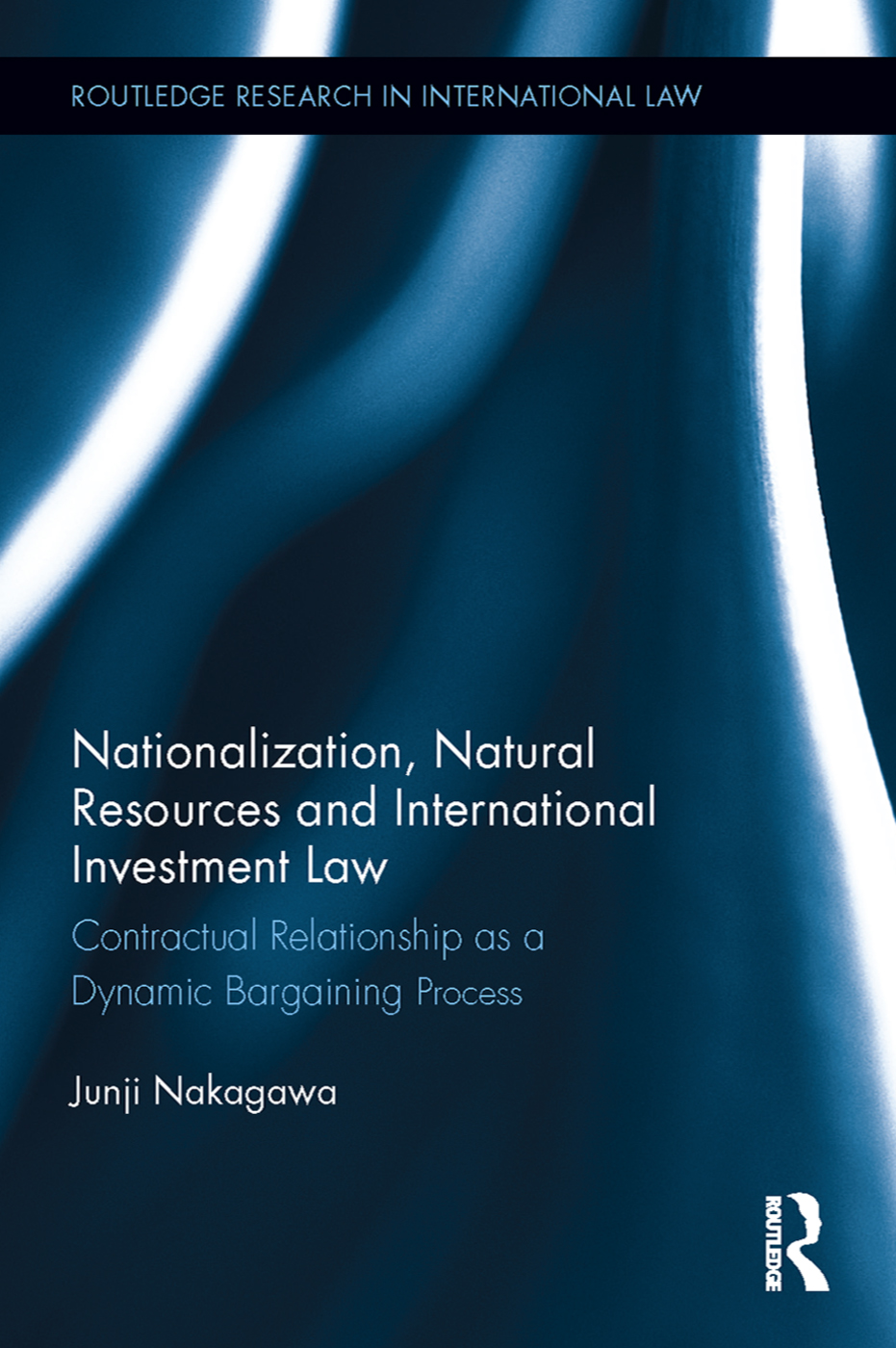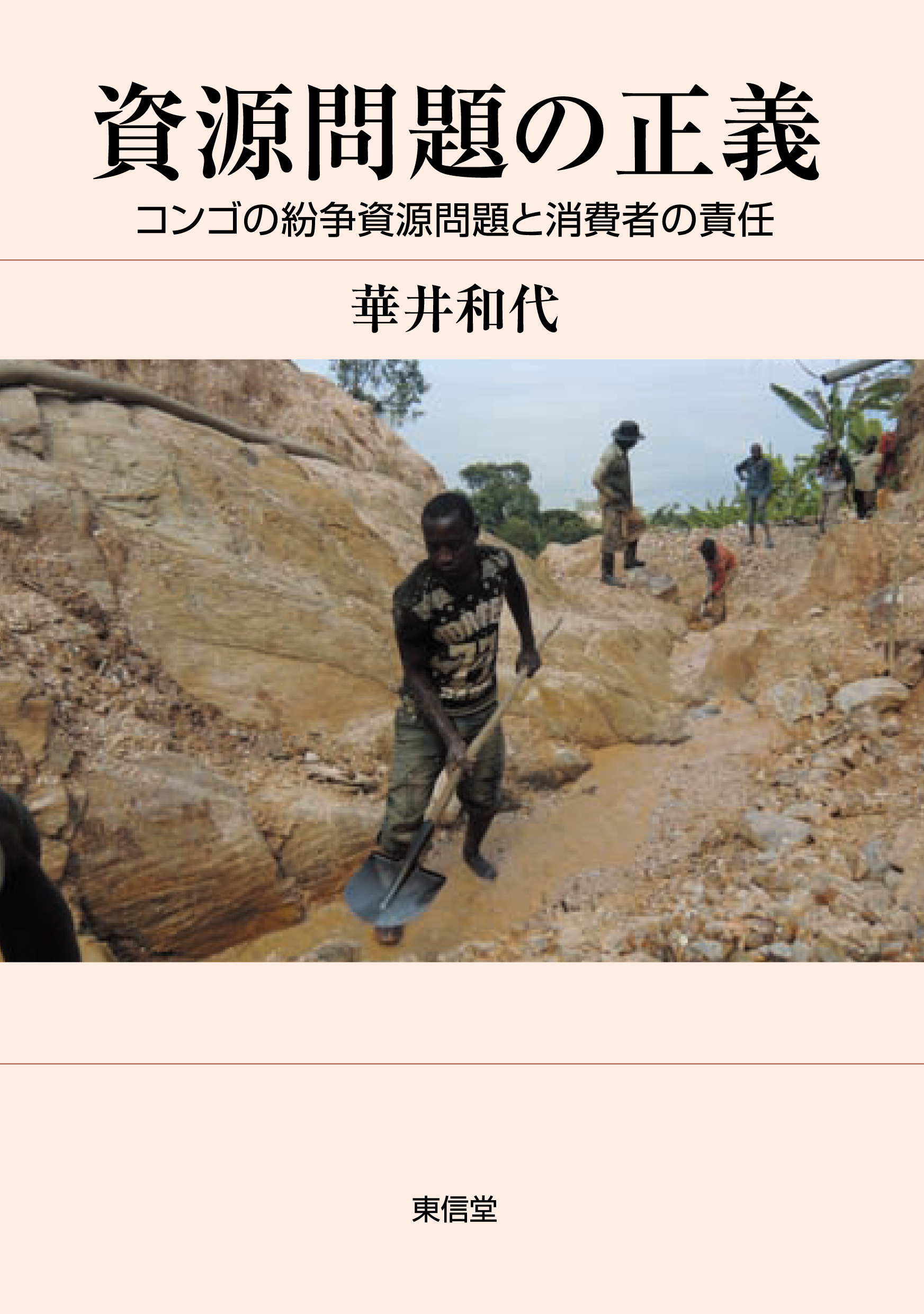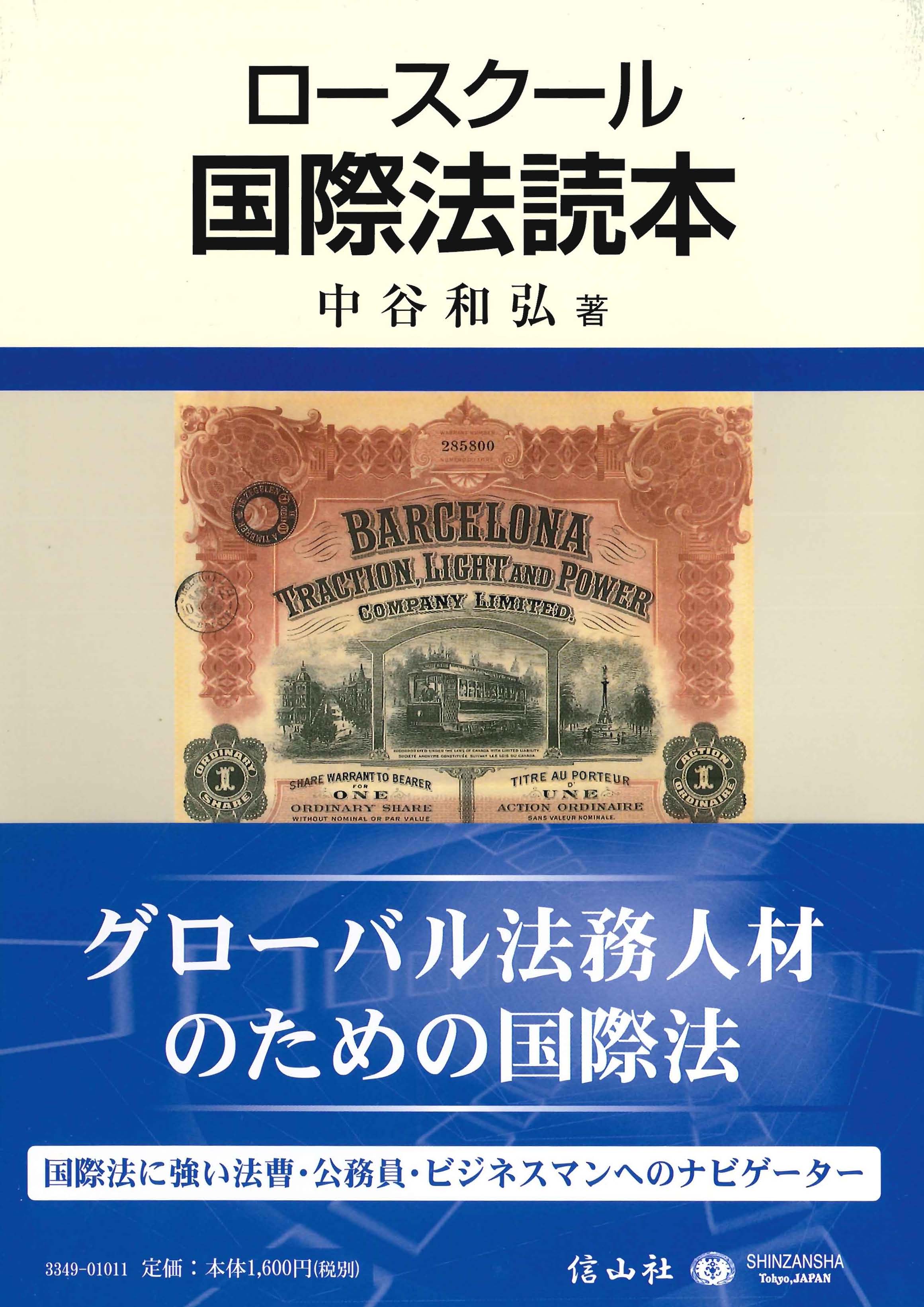
Title
Routledge Research in International Law Nationalization, Natural Resources and International Investment Law Contractual Relationship as a Dynamic Bargaining Process
Size
250 pages
Language
English
Released
July 06, 2017
ISBN
9781138939615
Published by
Routledge
Book Info
See Book Availability at Library
Nationalization, Natural Resources and International Investment Law
Japanese Page
Originally published in a Japanese-language edition from Kokusai Shoin in August 1990, this book is an updated English edition of the author’s Ph.D. thesis. The thesis was submitted to the University of Tokyo in September 1987 as a part of the process leading to the acquisition of a Ph.D. in Law, or LL.D., from the University of Tokyo in March 1988. The author has updated the original 1990 edition and translated it into English. Routledge, seeing the merit of this book, published it in August 2017, 30 years after the submission of the original thesis. The reasons for publishing this new edition are described below.
First, the book’s main argument is that the legal relationship between host states and foreign enterprises for the development of natural resources is best described as a dynamic bargaining process. This process occurs between the contracting parties, that is, host state governments or state enterprises of host states and foreign enterprises. The author calls this dynamic bargaining process a “legal process of natural resource development.” Each party tries to secure or enhance its interests by resorting to the governing law of agreements, the governing law for nationalization, or the governing law for revising agreements, depending on the stage of their relationship. Scholars of international law, however, have focused mainly on specific, and rather exceptional, cases of nationalization, or unilateral repudiation of agreements for the development of natural resources. Thus, they have paid almost no attention to renegotiation and flexible revisions.
Second, most agreements for the development of natural resources that were concluded from the late 19th century to the mid-1950s were renegotiated and transformed into so-called “modern agreements.” These agreements reflected an enhanced balance between the interests of host states and foreign enterprises. This book persuasively describes this development from “traditional” to “modern” agreements for the development of natural resources. The author’s description is based on a comprehensive and meticulous analysis of primary sources. These sources include agreements, domestic laws of host states, resolutions of international organizations (OPEC, the UN, etc.), treaties and international arbitration cases, and secondary works written by international law scholars.
In sum, this book sheds new light on the contractual relationships between host states and foreign enterprises in long-term natural resource development projects. In doing so, the author defines it as the legal process of natural resource development. This framework may be applied to other types of foreign direct investment, such as infrastructure building and management. Infrastructure projects that could apply to this framework include water supply, electric power generation and supply, road/port/airport construction and management, urban development, etc. This book is useful as a reference that will assist those designing legal frameworks for the establishment and risk management of such long-term FDI projects, including various types of public-private partnerships (PPP).
(Written by Junji Nakagawa, Professor, Institute of Social Science / 2018)
Table of Contents
Chapter 2 Agreements for the development of natural resources
Chapter 3 Governing law of agreements
Chapter 4 Governing law for nationalization
Chapter 5 Governing law for revising agreements
Chapter 6 Legal process of natural resource nationalization disputes: concluding remarks
Postscript
Appendix 1: List of agreements for the development of natural resource
Appendix 2: References for the list of agreements for the development of natural resources
References
Index
Index of cases



 Find a book
Find a book


 eBook
eBook
